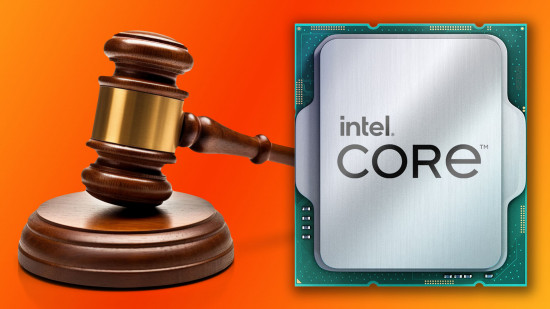A law firm says it’s investigating the potential to file a class action lawsuit against Intel, as a result of the instability issues experienced by owners of the company’s 13th and 14th-gen CPUs. Abington Cole + Ellery is currently appealing to owners of the Intel CPU models who’ve experienced problems to come forward, with the hope of bringing a case against the processor maker.
Stability problems with Intel’s latest desktop CPUs are now widely reported, particularly regarding crashes in games based on the Unreal engine. Intel is promising to release a fix later in August 2024, but the company has already said that there won’t be an Intel CPU recall for the affected chips. If you’re looking for the best gaming CPU to buy right now, our best advice is to take the AMD route instead.
Abington Cole + Ellery has outlined the basis of the potential case on its website, where you can also fill in a form if you want to potentially be a part of the lawsuit. Class action lawsuits are when a group of people club together, often from all over a country, to present a unified case. The idea is that everyone then gets rewarded from the proceeds, but the benefits for each person often turn out to be small when a case is brought by many people.
“Abington Cole + Ellery is investigating a potential class action lawsuit regarding Intel Core 13th/14th Generation processor instability issues,” says the company, referring to reports that instability issues affect “potentially all 65W and higher CPUs” from Intel’s current 13th-gen and 14th-gen lineup, which includes the Core i9 14900K, as well as the Core i5 14600K.
Game crashes on Intel CPUs have been reported for months now, particularly on titles based on the Unreal engine, recently including The First Descendant out of video memory issue. A common error message tells you that your system doesn’t have enough VRAM, even if you have an RTX 4090 GPU with 24GB of VRAM, with even Nvidia sending gamers to Intel tech support to resolve the problem. Meanwhile, one game developer outright claimed that “Intel is selling defective CPUs,”
While Intel has said it won’t issue a recall of the affected chips, it has said it will honor returns of affected CPUs with replacements, and this appears to be happening. In a thread about the lawsuit on r/Intel, user MDA912 said, “I can confirm they are honoring the warranty. Either tonight or tomorrow night I’ll be disassembling my PC so I can take pictures of the CPU and send those to them.
“Then when they’re satisfied with that they will contact me for credit card information and cross ship me a new CPU. I’ll send the old one back and when they receive it, they’ll un-bill my credit card. They charge $25 for this and offered me just sending in the bad CPU and then they’d send me a new one as an alternative.”
The $25 fee is the charge for replacing the CPU without you having to physically return the RMA and wait for a new one. If you’re happy to send your CPU back to Intel, and live without your processor in the intervening time, then there should be no charge.
If you’re looking to buy a new gaming CPU right now, your best bet is to check out our AMD Ryzen 7 7800X3D review, as this chip isn’t just faster than the Core i9 14900K in most of our game tests, but it’s also much cheaper.
